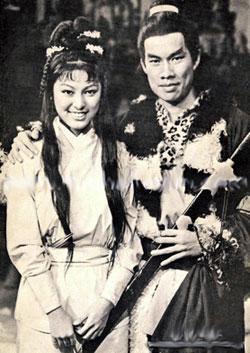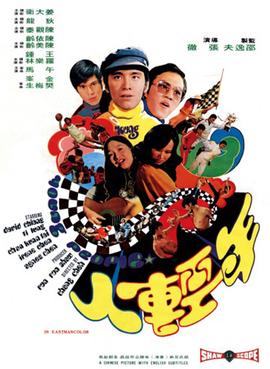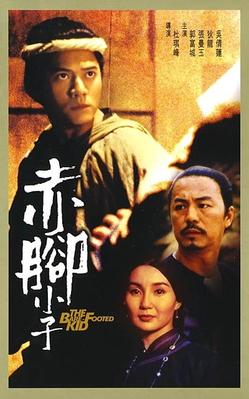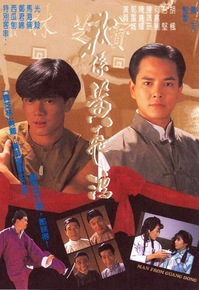Eagle King is a 1971 Hong Kong wuxia film directed by Chang Cheh and produced by the Shaw Brothers Studio.
The Empress Dowager is a 1975 Hong Kong historical film directed by Li Han-hsiang and produced by the Shaw Brothers Studio, starring Lisa Lu as Empress Dowager Cixi.

Shek Wing-cheung, better known by his stage name Shih Kien, Sek Kin, Sek Gin or Shek Kin, was a Hong Kong actor and martial artist. Shih is best known for playing antagonists and villains in several early Hong Kong wuxia and martial arts films that dated back to the black-and-white period, and is most familiar to Western audiences for his portrayal of the primary villain, Han, in the 1973 martial arts film Enter the Dragon, which starred Bruce Lee.
A list of awards given to members of the Hong Kong Civil Service:

The Sentimental Swordsman is a 1977 Hong Kong wuxia film written and directed by Chor Yuen and produced by the Shaw Brothers Studio. It stars Ti Lung, Derek Yee, Ching Li, Yueh Hua, Fan Mei-sheng and Ku Feng. The film is based on Duoqing Jianke Wuqing Jian of Gu Long's Xiaoli Feidao Series of novels.

The Wandering Swordsman is a 1970 Hong Kong wuxia film directed by Chang Cheh and produced by the Shaw Brothers Studio, starring David Chiang and Lily Li.

The Deadly Duo is a 1971 Hong Kong Wuxia film directed by Chang Cheh, and starring David Chiang and Ti Lung.

Death Duel is a 1977 Hong Kong wuxia film directed by Chor Yuen under the Shaw Brothers Studio banner. The film stars Derek Yee, Ling Yun, and marked the debut of Candice Yu for Shaw Studio where she plays a prostitute. The film based on the Gu Long's novel of the same name. It was remade in 2016 as Sword Master, directed by Derek Yee.

Legend of the Bat, also known as Bat Island Adventure or Clans of Intrigue 2, is a 1978 Hong Kong wuxia film adapted from Bianfu Chuanqi of Gu Long's Chu Liuxiang novel series. The film was directed and written by Chor Yuen, produced by the Shaw Brothers Studio, and starred Ti Lung as the lead character. It was preceded by Clans of Intrigue (1977) and followed by Perils of the Sentimental Swordsman (1982).

The Legend of the Condor Heroes is a Hong Kong television series adapted from Louis Cha's novel of the same title. The series was first broadcast on CTV in Hong Kong in 1976.

The Duke of Mount Deer is a Hong Kong television series adapted from Louis Cha's novel The Deer and the Cauldron. It was first aired on TVB in Hong Kong in 1998.

Where's Officer Tuba? is a 1986 Hong Kong action comedy film directed by Philip Chan and Ricky Lau and starring Sammo Hung, Jacky Cheung, David Chiang and Joey Wong. The film was later remade as Look Out, Officer! in 1990 which starred Stephen Chow.

Dead End is a 1969 Hong Kong action drama film directed by Chang Cheh and starring Ti Lung, Lee Ching, David Chiang, Chan Hung-lit, and Angela Yu Chien. Dead End marks the first film that Chang directed set in modern day, Ti's first leading role, and the first collaboration of director Chang with stars Ti and Chiang, dubbed "The Iron Triangle," because of their successful line of films together which would last several years.

Have Sword, Will Travel is a 1969 Hong Kong wuxia film directed by Chang Cheh and starring Ti Lung, David Chiang and Lee Ching.

Young People is a 1972 Hong Kong coming-of-age action drama film directed by Chang Cheh and starring David Chiang, Ti Lung, Chen Kuan-tai, Irene Chan and pop singer Agnes Chan, the younger sister of Irene Chan, in her debut film role.

The Duel, also known as Duel of the Iron Fist, is a 1971 Hong Kong martial arts film directed by Chang Cheh and starring Ti Lung, Wang Ping, Yue Wai and David Chiang.
ICAC Investigators 1996 is a 1996 Hong Kong crime television miniseries co-produced by Television Broadcasts Limited and the Independent Commission Against Corruption of Hong Kong, and the eighth installment of the ICAC Investigators series.

The Bare-Footed Kid is a 1993 Hong Kong martial arts film directed by Johnnie To and starring Aaron Kwok, Maggie Cheung, Ti Lung and Jacklyn Wu. The film is a remake of the 1975 film, Disciples of Shaolin, which was directed by Chang Cheh.

Man from Guangdong is a 1991 Hong Kong martial arts television series produced by TVB and tells the story of Leung Kan, portrayed by Aaron Kwok, the fictitious son of famed martial artist Leung Foon, whom was a favored disciple of folk hero Wong Fei-hung, portrayed by Shih Kien. Shih, who portrayed Wong in the series, was known for portraying antagonists in a series of Wong Fei-hung-related films during the 1940s to 1970s, while the series also features Sai Gwa-Pau reprising his role as "Buckteeth So" from the aforementioned series of films.















